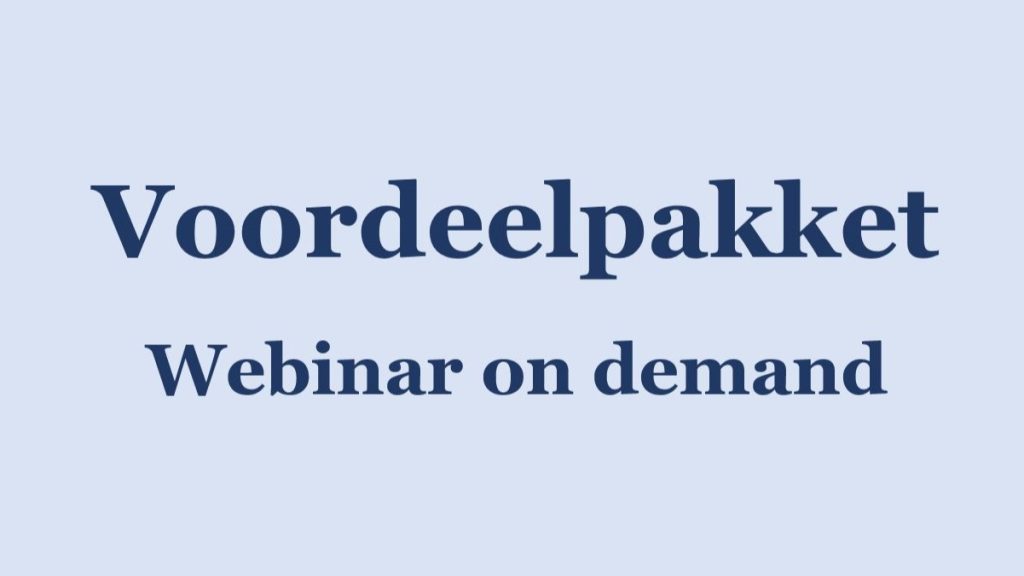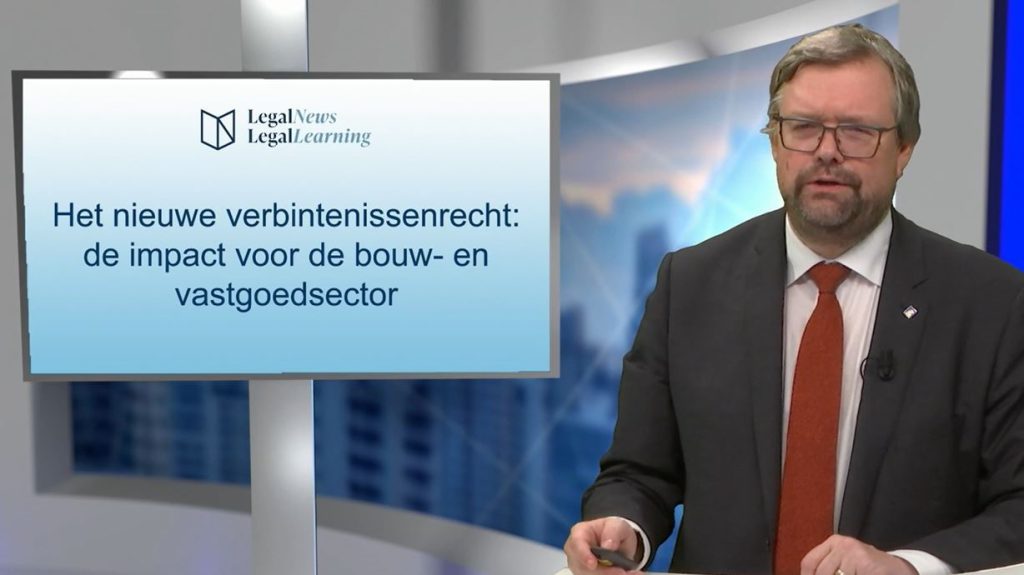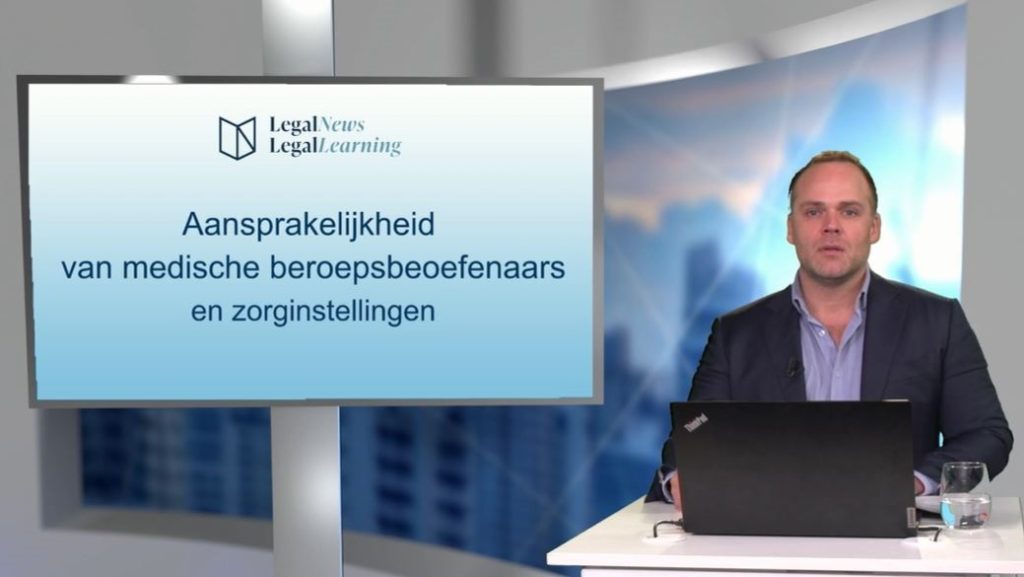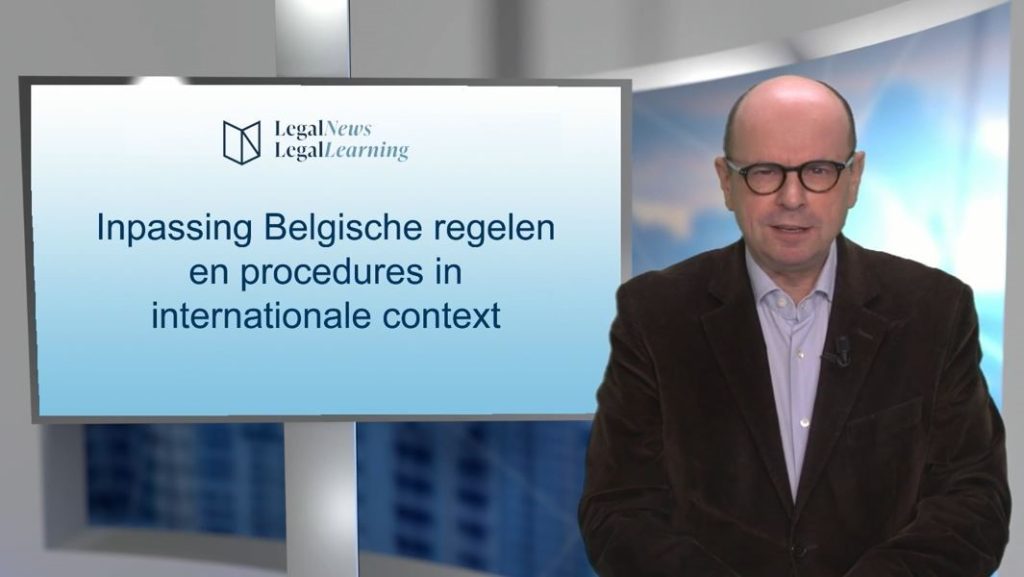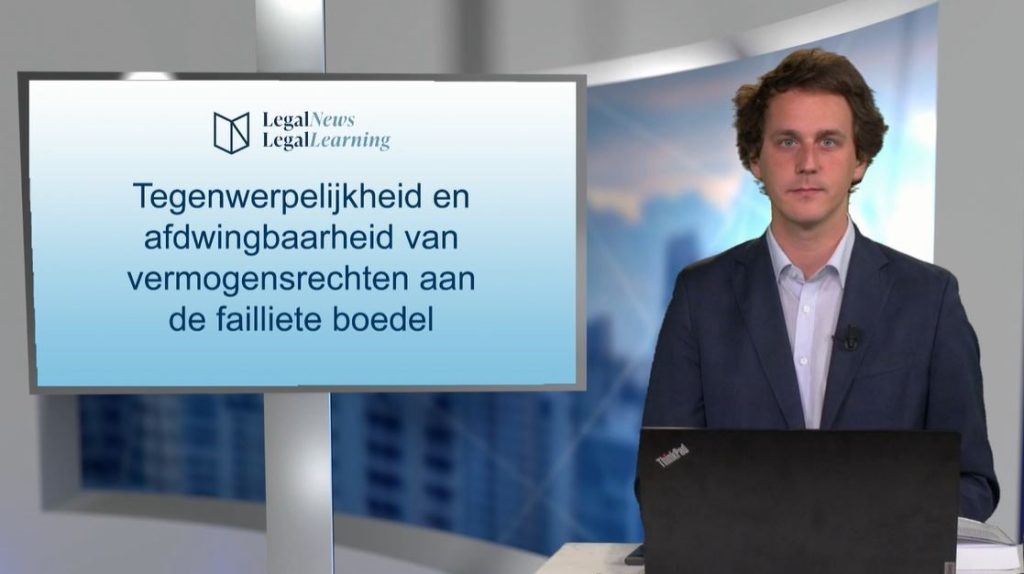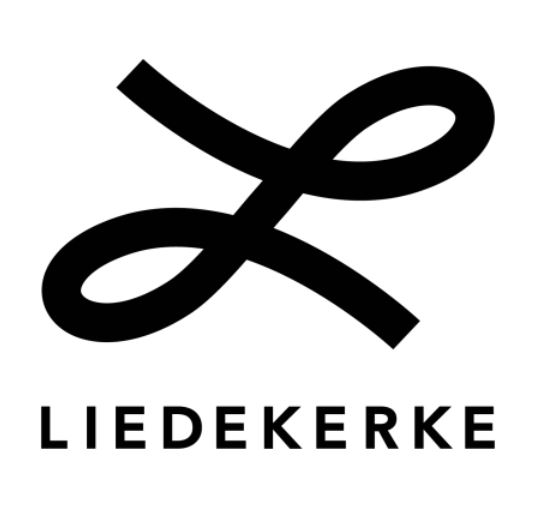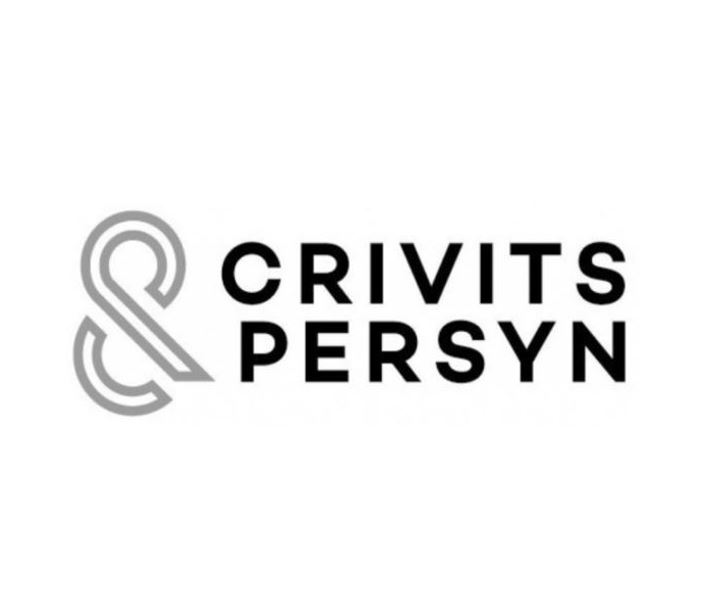Consumentenbescherming bij de verwerving
van financiële diensten: de laatste ontwikkelingen (optioneel met handboek)
Prof. dr. Reinhard Steennot (UGent)
Webinar op donderdag 30 mei 2024
Ondernemingsstrafrecht:
wat wijzigt er door boek I en boek II van het Strafwetboek?
Mr. Stijn De Meulenaer (Everest)
Webinar op dinsdag 11 juni 2024
Het nieuwe Boek 6:
de impact op de werkvloer
Mr. Chris Persyn (Cautius)
Webinar op donderdag 4 juli 2024
Aansprakelijkheid van hulppersonen
in en buiten de contractketting.
Een analyse in het licht van Boek 6
Prof. dr. Ignace Claeys en mr. Camille Desmet (Eubelius)
Webinar op vrijdag 30 augustus 2024
Aandeelhoudersovereenkomsten
in het licht van de nieuwe wetgeving
Mr. Michaël Heene (DLA Piper)
Webinar op vrijdag 31 mei 2024
De invoering van Boek 6
en de impact voor de medische sector
Prof. dr. Christophe Lemmens (Dewallens & Partners)
Webinar op vrijdag 4 oktober 2024
Delinquent mortgage loans: the EU is working hard to promote solutions for dealing effectively and responsibly with NPLs – Our Belgian supervisory approach needs a change of direction (Corporate Finance Lab)
Authors: Ivan Peeters and Charles-Henri Bernard (PwC Legal / guest bloggers Corporate Finance Lab)
Publication date: 15/01/2021
1. Under the Belgian regulation on residential mortgage credit (the “ML Regulation”)[1], any individual or legal entity willing to own and hold receivables arising from residential mortgage loans, either by originating such loans or by purchasing mortgage loan receivables, must be authorised as a mortgage lender (“kredietgever inzake hypothecair krediet” / “prêteurs en crédit hypothécaire”). This authorisation shall be requested to, and granted by, the Belgian Financial Services and Markets Authority (the “FSMA”).
2. However, certain derogations from the normal authorisation conditions are available for two special categories of entities:
a) entities that only manage and recover mortgage loans; and
b) certain special types of purchasers of mortgage credit receivables, in particular securitisation vehicles and mobilisation institutions more generally.
These derogations were introduced in the ML Regulation in 2017, when existing mortgage credit lenders and existing mobilisation institutions were required to seek an updated licence (the “2017 Update”).
3. But what about sales of delinquent or defaulted residential mortgage loans. How does this fit within the ML Regulation and, more broadly, within the Belgian regulatory framework?
Entities that only purchase and manage delinquent or defaulted mortgage loans
4. This situation is not as such addressed in the ML Regulation. When a mortgage loan has definitively defaulted and accelerated, should the purchaser of the unpaid loan receivable be subject to any licence, other than a registration as a recognised consumer debt collector under the debt collection legislation (the “DC Regulation”)[2]? In practice until recently at least the working assumption was that the debt collection licence should in principle suffice provided the purchaser was not planning to pro-actively offer new credit to the debtor (refinancing, consolidation, …) or to other consumers. Since this “exemption” is not included expressly in the ML Regulation, its exact requirements are not clear, let alone set in stone.
6. If the loans are delinquent or defaulted, but the mortgage has not yet been enforced prior to the sale, the FSMA takes the view that the repayment deferral by the purchaser is an offer of a residential mortgage credit and thus requires the purchaser to be authorised as a mortgage lender by the FSMA under the ML Regulation.
5. Recently the FSMA has taken position in relation to the regulatory treatment of this type of sale/purchase. According to the FSMA the key criterion is whether, or not, the purchaser intends to grant deferrals of repayment of the loans. This could occur to achieve an amicable workout or to offer the debtor the opportunity to find a suitable buyer or better price for the mortgaged property. The analysis of the FSMA is that such deferral is legally equivalent to the provision of credit to a consumer and must therefore be regulated.
7. If the loans are delinquent or defaulted, but the mortgage has been enforced prior to the sale or prior to the granting of the deferral, the FSMA takes the view that the repayment deferral is an offer of a consumer credit governed by the Belgian consumer credit legislation (the “CL Regulation”)[3]. The FSMA, however, acknowledges that compliance with the DC Regulation would require that such deferral would be free of charge and would thus exempt the purchaser from having to obtain a full licence as a consumer credit lender in accordance with the CL Regulation.
Entities that only manage and recover mortgage loans
8. Companies that originally had an activity of granting mortgage loans, no longer wish to have such an originating activity but only wish to manage and recover loans that they (still) hold (a “residual” portfolio), were not required to submit updated model credit agreements for approval by the Belgian Ministry of Economic Affairs (the “FPS Economy”) as part of their updated licencing under the 2017 Update.
9. In practice, an exemption to submit model credit agreements should also be available for companies that have never had an activity of originating any loans but have purchased them as receivables which they subsequently manage and recover. The same would of course apply to a company having stopped originating loans and thereafter intends to merely purchase mortgage receivables.
10. A key condition for obtaining and maintaining this administrative derogation is that the company can establish that it does not (or no longer) grant residential mortgage loans. Shall a deferral of payment agreed before the mortgage is enforced be seen as new loan or credit? Or is this merely a practical feature to allow for payment of the loan receivable by the borrower in more favourable circumstances?
11. In the past, the FPS Economy seemed to follow the second analysis by allowing that no-standard documentation was mandatory in case of such repayment deferrals. As explained in paragraph 5 above, the FSMA seems to take the view that, as a rule, such a repayment deferral should be characterised as the granting of credit, unless the extra time for repayment is provided for by law or a court ruling.
12. In practical terms, this would mean that a company that wishes to confine itself to management and recovery but wishes, as a matter of policy, to allow deferral of repayments prior to mortgage enforcement would have to meet the maximum set of conditions for authorisation as a mortgage lender, including the submission of model credit documents. However, this more legalistic view risks to raise difficult practical issues, in particular where, as is often the case, the company purchases receivables from another lender without assuming the full contractual position of lender. If one follows the analysis of the FSMA, would the purchaser than also need to take over the entire contractual position by substituting the old contract with a new contract with the purchaser as full lender counterparty?
Mobilisation institutions
13. In 2017[4], far-reaching exemptions from authorisation requirements were also introduced into the ML Regulation for certain types of purchasers of mortgage loan receivables, in particular so-called ‘mobilisation institutions’ (“mobiliseringsinstelling” / “organisme de mobilisation”). This includes an exemption from the obligation to submit templates of credit agreements for loan origination.
14. This exemption is mainly justified by the fact that these entities merely own the receivables and do not assume the full legal position as lender under the credit agreement that exists and continues with the original lender. As a consequence, in their authorisation application, such entities must include a confirmation “that it only intends to take over receivables arising from a mortgage credit with an immovable purpose and not to grant credit and that its authorisation as the transferee of such receivables does not allow it to grant credit”[5].
15. Will the position of the FSMA mean that mobilisation institutions will also no longer be able to benefit from this exemption if they wish to practice payment deferrals to optimise loan recovery? The required confirmation as mentioned above has not been explicitly inserted in ML Regulation as a formal condition for this exemption. Moreover, often transfers of mortgage receivables to mobilisation institutions will not be disclosed to the borrower and will therefore not be legally effective against the borrower/debtor. Legally, the credit relationship and the credit agreement will remain exclusively between the borrower and the original lender-transferor. This means that any deferral would legally be granted by the original lender, which is subject to supervision as a fully authorised mortgage lender, including standard credit agreements. Typically, such deferrals will only be granted to the extent this is consistent with the original lender’s own normal policy for managing its loans and with the terms of the credit agreement between the original lender and the borrower/debtor. We are therefore of the opinion that for mobilisation institutions and mobilisation transactions (including securitisations of mortgage receivables), payment deferrals should not jeopardise the easing of authorisation conditions.
EU initiatives to tackle non-performing loans
16. With the 2017 Council Action Plan on non-performing loans (“NPLs”)[6] the European Council decided to try and tackle the problem of too high volumes of NPLs within the EU. Despite significant progress on implementation, key measures, in particular the EU Commission’s proposal for a Directive on credit servicers, credit purchasers and for the recovery of collateral, have not yet been adopted by the European Parliament and Council. Building on the 2017 Council Action Plan, the EU Commission has, on 16 December 2020, announced further targeted measures to address a possible accumulation of NPLs over the medium term, as a result of the COVID-19 pandemic (the “NPL Action Plan”).
17. A key element of this updated action plan remains to support the development of a deep and liquid secondary market for distressed assets, including NPLs. This would provide lenders (including mortgage lenders) with the possibility to reduce their NPLs by selling them to third-party investors (including mobilisation institutions). This would also help credit institutions to focus on their core banking activities by freeing up space in their balance sheets for new lending, enabling them to fund the economic recovery.
18. An easier market entry and participation will be encouraged, especially for small and mid-sized sellers and buyers, which may be crucial for local-level NPL resolution. One vital step is reaching an agreement on the EU Commission’s proposal for a Directive on credit servicers, credit purchasers and the recovery of collateral (adopted in March 2018)[7]. This proposal seeks to open financial markets whilst ensuring that the debtor protection across the EU single market is not weakened in case of sale of the loan in respect to the protection that the initial lending bank offered. It would ensure that consumer protection obligations are upheld irrespective of how NPLs are resolved. The policy approach to achieve this is to put regulatory and supervisory focus on the “servicer” of the loans (i.e. the entity maintaining the ongoing relationship with the borrower after a sale of the loan) and to lower regulatory barriers for purchasers of loans across the single market.
19. As mentioned above, under the ML Regulation, it is the owner (including the purchaser, if any) of a residential mortgage loan that is the key subject of the regulatory supervision. This means that potential purchasers will need to address licencing requirements in Belgium. In view of the set policy objectives of the EU, regulatory and licencing requirements that impose a burden on purchasers and add little value and limit the possibilities to achieve a good or optimal outcome for the borrowers, the lenders and the financial system, should be eliminated. A less formalistic interpretation of the ML Regulation would be a first step. A more fundamental change of the regulatory approach where the servicing relationship and the compliance of product regulation is the focus, should then bring our regulatory framework fully in line with the NPL Action Plan.
[1] Book VII of the Belgian Code of Economic Law, as well as any implementing royal decrees.
[2] Law of 20 December 2002 on the amicable recovery of consumer debts.
[3] Book VII of the Belgian Code of Economic Law, as well as any implementing royal decrees.
[4] Royal Decree of 13 May 2017 providing certain licensing exemption for particular categories of assignees
[5] Royal Decree of 29 October 2015 implementing Title 4, Chapter 4 of Book VII of the Code of Economic Law.
[6] ECOFIN Council ‘Action Plan to Tackle Non-Performing Loans in Europe’, July 2017.
[7] Proposal for a Directive of the European Parliament and of the Council on credit servicers, credit purchasers and the recovery of collateral (COM/2018/0135), 14 March 2018.
» Bekijk alle artikels: Verbintenissen & Goederen, Insolventie & Faillissement, Verzekeringen & Aansprakelijkheid








